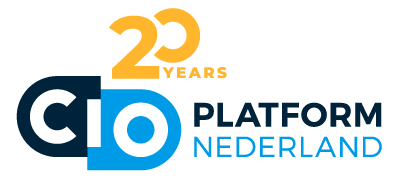‘The roadmap to digital transition’
‘The roadmap to digital transition’
 Thursday 29 March 2018 09:20
Thursday 29 March 2018 09:20 Or: which steps were taken by BAM and Dura Vermeer towards digitalization and which impact did this have on IT? During the Theme session on Tuesday the 20th of March these questions were deepened.
Martin Wanschers, Business Change Manager at BAM Infra Connect, and Hans Aalbers, ICT director at Dura Vermeer, took the participants on their digital transition journey. Victor Pereboom from start-up Dutch Analytics also held a presentation and shared their process within the BAM Infra Rail use case: how to gain value out of your processes for the customer and the contractor with AI and Machine Learning?
‘Building the present, creating the future’
First Martin Wanschers introduced Hollands largest building company on the main aspects with their many operating companies, entrepreneurial employees and a wide range of customer groups. Secondly he presented the new reality of BAM in comparison with a traditional construction company. Inspired by the What-How-Why principle of Simon Sinek the new infrastructure of the future was created. The new image of BAM is about the connectivity of people. The common denominator, the Why, is to understand the context of the customer and the contractor and to put the customer first in a digital driven company. Shortly: the B2B4C model. Using dominant information is essential to gain insights, to implement improvements or to close new tenders. With specific examples about the ‘agile app delivery’ project (the deployment of smart meters), the Connectivity Lab and the corresponding key successors and learnings caused many interactions and food for thought among the participants.
These discussions were fed by the statement brought in. For example: “Digital is seen as the enabeler and needs to be organized as close as possible to the business”. The participants shared the same view, one motivation for explanation: “If you want to make speed, you need to differentiate”.

Next speaker was Hans Aalbers, he presented the impact of building virtually on the construction business and how this BIM model (Building Information Modeling) within Dura Vermeer worked out and how it woke up the innovative way of thinking. The ingredients for success are; their clear strategic focus on supporting daily business with BIM and to conduct the opportunities of (big) data. The role of the ICT organization is to inspire and to put the needs of the customers ahead. Hans drew up the image of the ‘construction site of the future’ while using AI, augmented reality, drones, unmanned trucks and robots. At the end Hans shared several lessons learned that were of a great importance towards digital transformation.
Digitalization with machine learning & AI
As a third source of inspiration Victor Pereboom, co-founder and CTO of start-up Dutch Analytics, explained how intelligent systems out of exponential quantities recognize data relations and patterns. After that insights and predictability can be created to make better decisions. Step-by-step he showed the participants how they helped BAM Infra Rail how to monitor the behaviour of the assets. Based on the insights it is possible to predict breakdowns by track failures, to keep preventive maintenance in control. A successful business case, spending enough time into the experimental stage during data pre-processing and analysing and using short lines between data scientists and domain experts to check the output, were some cliff hangers during this presentation.
Overall conclusion after hearing all three presentations: not matter how good the plans and improvement are, if the organization isn’t (yet) ready for change, it is a hard way of working! Choose the way of digital transformation that fits your organization. During the drinks afterwards the CIO’s, their peers and IT professionals employed at the members of the CIO Platform Nederland inspired each other and shared their own experiences. We can look back on a Theme session that brought more than enough inspiration and food for thought.
- Tags
- Digital Strategy
